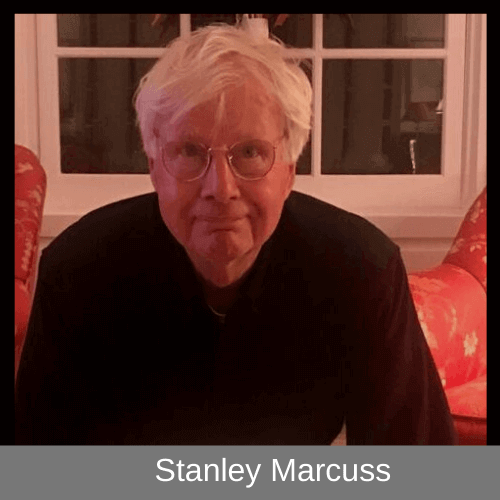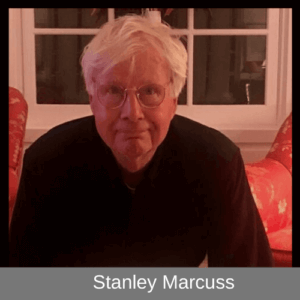
Stanley explains the negative effects of the adverse consequences of international trade. Listen to his story on Adlai Stevenson and why foreign corruption is still rampant in international marketplaces.
Top Take-aways
-
- How the US-China Delegation works
- How to harness the knowledge of other people to be able to work together and find solutions
- How to compromise to maintain peace in the world today
- How to embrace your ability to be flexible when it comes to your career
- The differences and similarities between government-led and private-led redevelopment
"Be flexible. You want to be able to change with time. Your interests and challenges will change and you need to be willing to change with your interests. Keep your antennas out so you can do other things, as opportunities arise." -Stanley Marcuss
In this episode you'll discover:
Stanley's experience working with Senator Adlai Stevenson [2:58]
The many legislation on trade issues promulgated during Adlai Stevenson's time [5:07]
Why foreign corruption is still rampant in international marketplaces [8:09]
Understanding the Anti-Boycott law that seeks to protects Israel's trade interests with the US [8:54]
How Antidumping and Countervailing Duties create a level playing field on international trade [10:14]
The meaning of US-China delegation to enable trade between the two countries [13:12]
The challenges of adverse consequences of international trade [14:53]
How the US engages in protectionism through trade tariffs imposing [17:11]
The social-economic consequences between government-led and private-led redevelopment [19:56]
How luck played in the success of Stanley in his diverse career [26:45]
The many challenges facing the world today [29:20]
Two things you should know before committing to a career in international trade [31:32]
CAREER IN INTERNATIONAL TRADE
Stanley Marcuss, a retired partner at Bryan Cave, is one of the country's foremost experts in international trade. As counsel to the International Finance Subcommittee of the Senate Banking Committee in the early 1970s, he played a central role in the development of legislation relating to export controls, antiboycott law, the Foreign Corrupt Practices Act and the Export-Import Bank.
Marcuss's law practice covers virtually all aspects of U.S. law pertaining to international trade and investment and includes such subjects as foreign bribery, international boycotts, economic sanctions, unfair trade practices, customs and U.S. import remedies. He has had experience in defending U.S. government civil and criminal investigations, appearing before U.S. appellate courts and establishing internal corporate compliance programs.
As Senior Deputy Assistant Secretary of Commerce in the late '70s, he headed U.S. antidumping and countervailing duty programs and administered U.S. export controls and antiboycott laws, as well as a variety of other international trade regulatory regimes. While in government, Stanley Marcuss was a member of the U.S. delegation to China that began negotiations for the first U.S.-China trade agreement and an end to the U.S. freeze on Chinese assets.
HARVARD KENNEDY SCHOOL
Stan was a Senior Fellow at the Kennedy School from 2015 to 2016 and with two Kennedy School colleagues, Victoria Alsina and Rachael Stephens, produced a Kennedy School Working Paper comparing the socio-economic consequences of the redevelopment of the Fourteenth Street corridor following the 1968 riots with the redevelopment of Southwest in the 1950's as part of the nation's urban renewal program. The working paper is on the Kennedy School website.
DEPARTMENT OF HOUSING AND URBAN DEVELOPMENT
Stan also worked for the Department of Housing and Urban Development in the late 1960's.
RESOURCES
PODCASTS LIKE THIS

